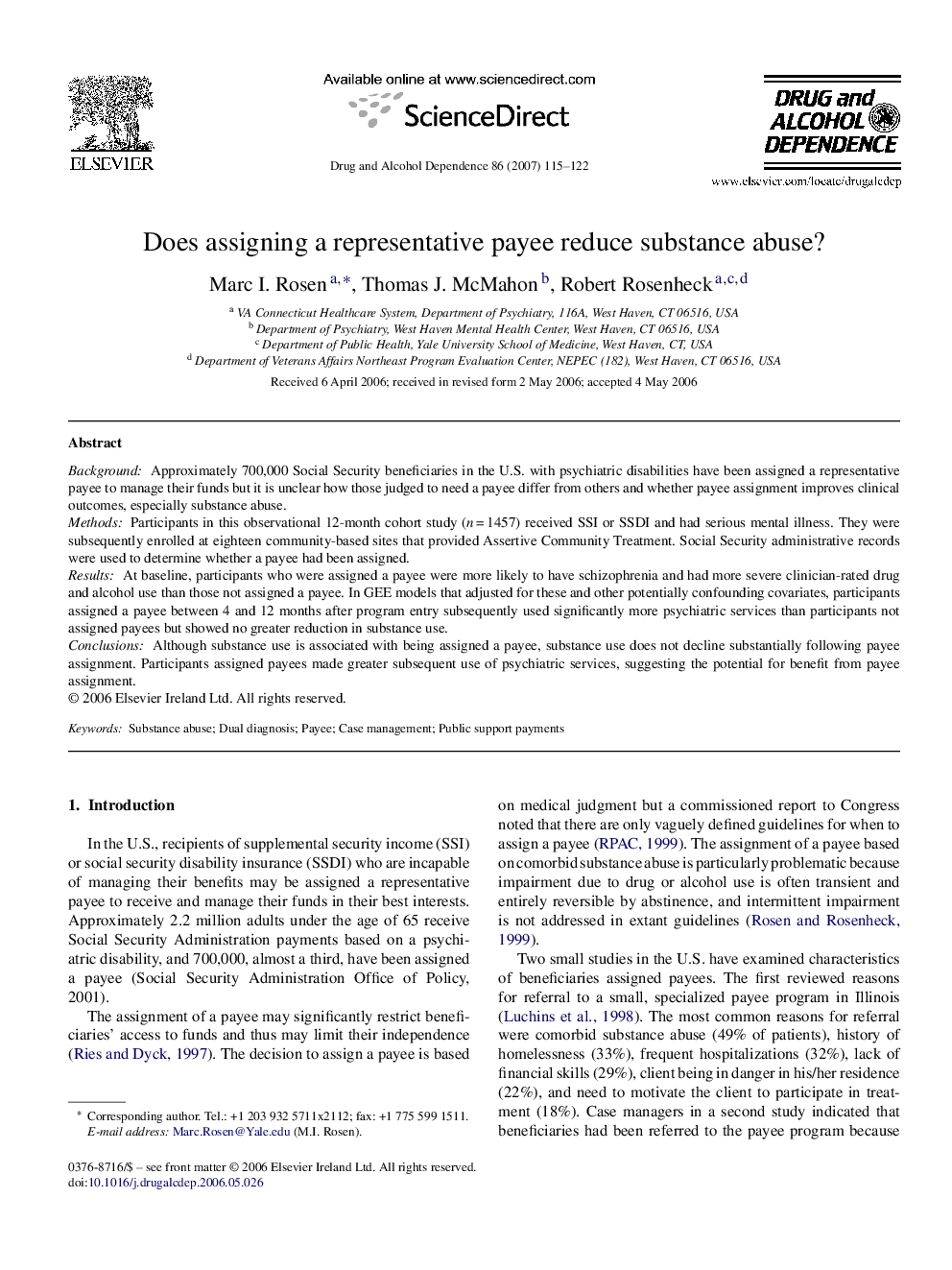| Article ID | Journal | Published Year | Pages | File Type |
|---|---|---|---|---|
| 1071735 | Drug and Alcohol Dependence | 2007 | 8 Pages |
BackgroundApproximately 700,000 Social Security beneficiaries in the U.S. with psychiatric disabilities have been assigned a representative payee to manage their funds but it is unclear how those judged to need a payee differ from others and whether payee assignment improves clinical outcomes, especially substance abuse.MethodsParticipants in this observational 12-month cohort study (n = 1457) received SSI or SSDI and had serious mental illness. They were subsequently enrolled at eighteen community-based sites that provided Assertive Community Treatment. Social Security administrative records were used to determine whether a payee had been assigned.ResultsAt baseline, participants who were assigned a payee were more likely to have schizophrenia and had more severe clinician-rated drug and alcohol use than those not assigned a payee. In GEE models that adjusted for these and other potentially confounding covariates, participants assigned a payee between 4 and 12 months after program entry subsequently used significantly more psychiatric services than participants not assigned payees but showed no greater reduction in substance use.ConclusionsAlthough substance use is associated with being assigned a payee, substance use does not decline substantially following payee assignment. Participants assigned payees made greater subsequent use of psychiatric services, suggesting the potential for benefit from payee assignment.
